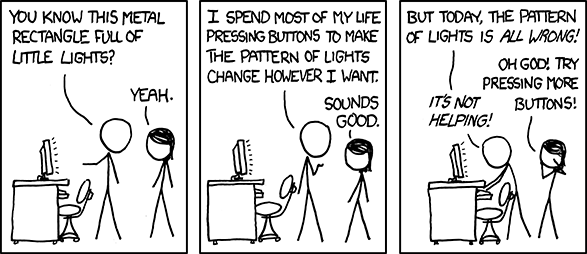Beginning of class: Digital Humanities is a field established within academic institutions that extend methods and practices for research, archive, pedagogy, etc. that takes place on a digital platform.
The functionalities of DH that interested me the most during the course of the class discussion was its possibility to add layers to text and academic discourse. In a grant report I was preparing, about MoMA’s own experimental platform, post.at.moma.org, I found myself discussing its aim to encourage networked learning, and allow multiple voices to be added to a single essay, or any presentations on the site. Though the design is not exactly effectively conveying these goals (needs improvement) but our main interest in building this site, I hope, will continue to grow and encourage a new way of writing/discussing art histories.
Another aspects of DH I found appealing was some project’s aim to provide accessibility to knowledge making and resources, and mode of work, which is collaboration. I recently realized that while it is very important to think about preservation and of vulnerable Japanese experimental film and video is urgent, providing access to researchers (say though an online platform) is the end-goal of the effort at large. By providing access, there may be new scholarship that emerge, which could lead to exhibitions, screenings, conferences, etc. The emergence of interest (currently there is not much research being done on Japanese early video), there could be opportunity for fund-raising for preservation of works. My thinking in the past couple weeks has been reversed: from preservation–> accessibility, to accessibility–>preservation.
Post-class definition: Digital Humanities is a current development in academia in which disciplines are extending their research methods, aided by new technology, to include among other characteristics, a collaborative mode of working, layered knowledge making, and opening accessibility to research data as well as systems of knowledge making.
 There There is no need to be afraid of coding! These days, DH job descriptions include a list of languages with which one should be familiar when applying (i.e., HTML, CSS, PHP, Python, etc.). I’ve seen more and more job descriptions asking for
There There is no need to be afraid of coding! These days, DH job descriptions include a list of languages with which one should be familiar when applying (i.e., HTML, CSS, PHP, Python, etc.). I’ve seen more and more job descriptions asking for 
